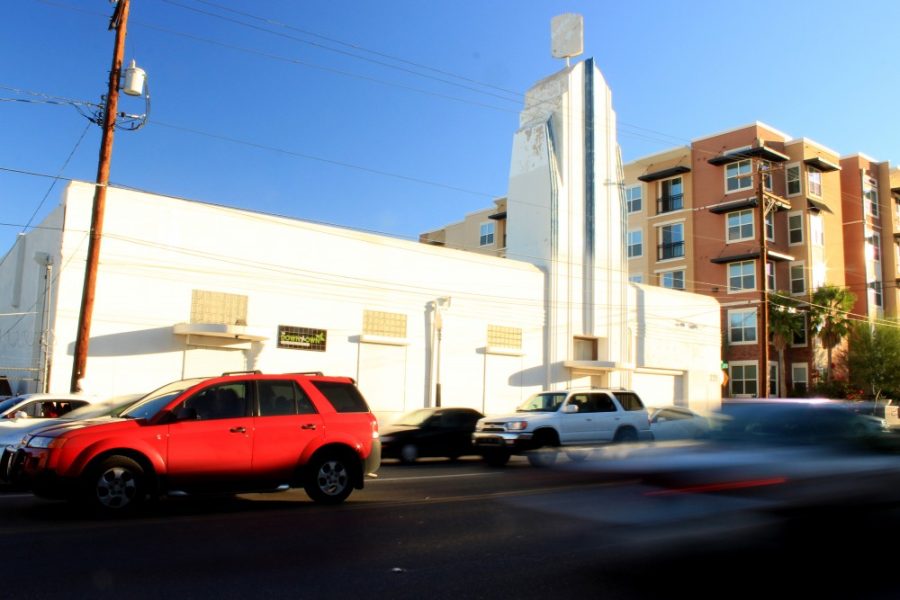By this time next year if you are a registered voter in the state of Arizona you will probably be able to vote yes or no to legalizing retail marijuana.
The initiative is backed by the Marijuana Policy Project, the same group behind the initiatives in Colorado, Washington, Alaska and Washington D.C., and it seems very likely that it will be on the ballot in November 2016.
The group already has over 100,000 of the needed 150,000 signatures with a goal of collecting 230,000. The law would make it legal for adults over the age of 21 to purchase marijuana in a licensed marijuana retail store, the total number of which would be capped at 10 percent of the total liquor store licenses in the state, and would allow adults over the age of 21 to posses up to one ounce of marijuana and consume marijuana in private. It also would allow adults over 21 to grow up to six cannabis plants in an enclosed space within their residence. It would not change existing penalties for impaired driving, public use and unlicensed sale.
“A part of the opposition’s argument is that we’re trying to radically change the way we are doing things and we are,” Carlos Alfaro, Arizona political director for the Marijuana Policy Project, said. “In a way we are ending prohibition that has been in place since the 1930s, but its not going to look anything like they’re saying. They’re saying there is going to be a marijuana store on every corner and that it is going to be unregulated and that’s just not the case.”
The law also would enact a 15 percent tax on retail marijuana sales, which would be used to fund the implementation and enforcement of the law with any additional revenue going toward education and public health. Of this additional tax revenue, 40 percent would go toward K-12 education (specifically teacher salaries and new buildings), 40 percent would fund all-day kindergarten programs and 20 percent would fund public health education programs regarding the risks associated with marijuana and other substances.
Of course, as with any controversial legislation, in the time leading up to the vote both those supporting and opposing the initiative will present a barrage of data, some of it skewed to present or support a specific agenda.
“One of the things that I think we’ll miss as part of the debate will be the discussion in the middle,” Will Humble, the former director of the Arizona Department of Health Services and the current division director of health policy and program evaluation at the Center for Population Science & Discovery at the Arizona Health Sciences Center, said “Because the country prosecutors and law enforcement will be making the argument, they’ll pick and choose the data that make it look like this is the worst thing that could ever happen to have a retail marijuana law. And then the advocates who believe the other extreme will say that no harm is ever done by marijuana ever to anybody. And the truth is in the middle.”
However, as with any legislation with a significant potential impact on public health, it is important to look honestly at the data regarding teen use, hospitalizations, impaired driving and the impact of criminal prosecution. The current felony convictions in place for marijuana possession carries a large public health impact for an entire group of people, influencing how employable they are, their potential income and ultimately the health status of their families.
“On one hand you have the fact that marijuana does have a bad impact in the community in the sense that it does cause accidents as the result of people using it and driving,” Humble said. “On the other side you have to look at it from the perspective that here is something that people are being given felony convictions for that carry through the rest of their life.”
Now this initiative will not be Arizona’s first encounter with legalized marijuana. The state currently has a medical marijuana program that was also created through a voter initiative passed in 2010.
“In Arizona … we have a voter initiative process, so things that would never get a hearing at the state legislature, like this, can bypass the state legislature and get directly on the ballot and once voters approve it, it becomes state law,” Humble said. “Medical marijuana is an example of that.”
As director of the Arizona Department of Health Services at the time the medical marijuana law was passed, Humble struggled to get the approximately 90 current medical marijuana dispensaries up and running in a timely manner. Legal issues raised by the attorney general at the time, Tom Horne, and concerns raised by former Gov. Jan Brewer about implementing a law in conflict with federal law slowed the process.
However, the proposed retail law is designed in such a way as to not face delay if opposed by the governor.
“In other words, the old Department of Health Services medical marijuana dispensaries become retail stores with no action on the part of the dispensaries,” Humble said. “So if you have a hostile executive who doesn’t implement the law and create the agency that is designed to be created if the voters approve this, there are some automatically implementing components that the authors put into the statutes.”
And how confident do those at the Marijuana Policy Project feel about the voters passing a retail marijuana law?
“I have seen poll numbers anywhere from 55 [to] 58 percent approval,” Alfaro said. “It’s a presidential election year so of course there is going to be a lot more new voters and there’s going to be a lot of independent voters coming out, and I would say we are very confident, not only that it’s going to make the ballot but also that it is going to pass next November.”
Follow Genevieve Patterson on Twitter.









